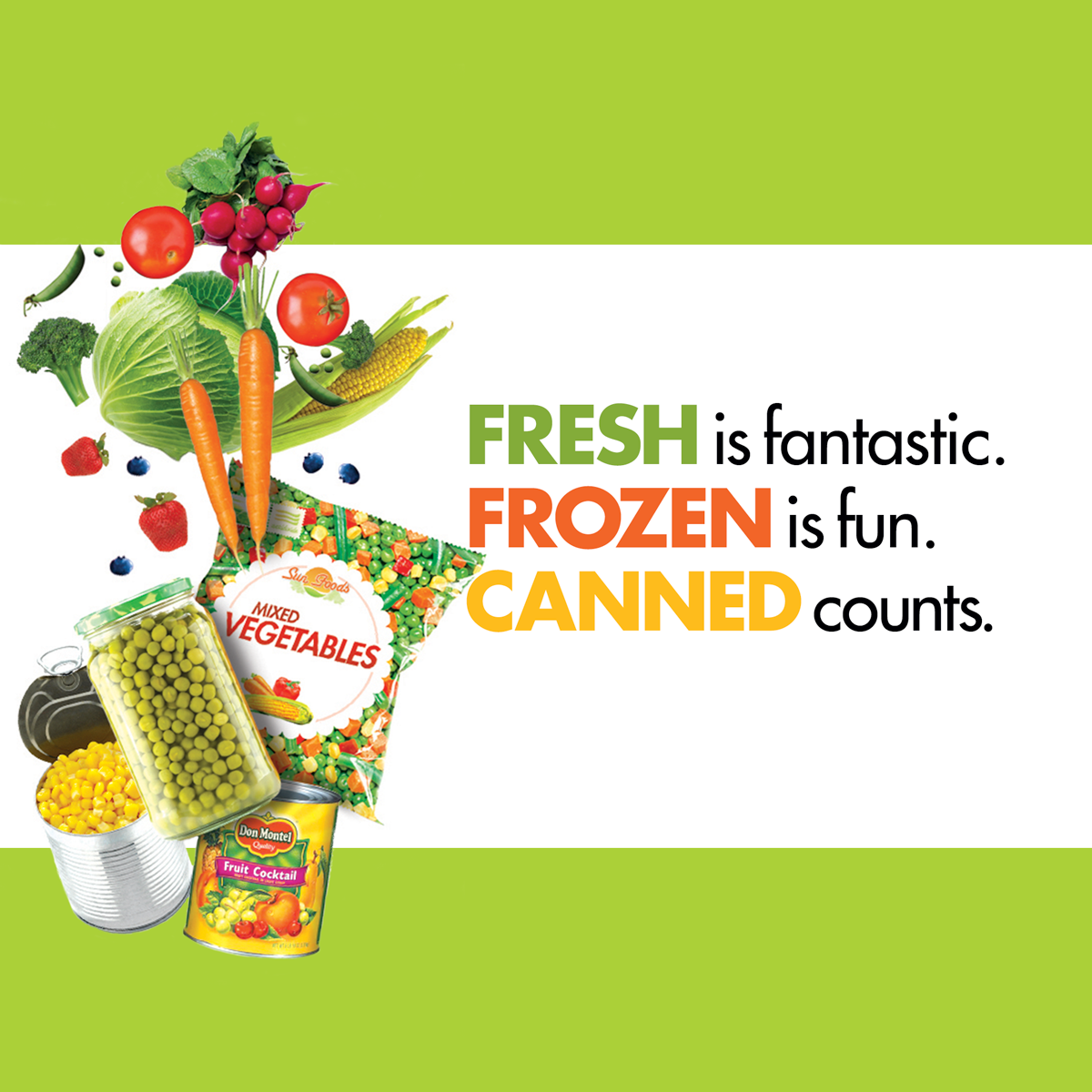Yikes! Americans aren’t eating enough fruits and vegetables. An easy way to keep your kitchen stocked with healthy meal options is to add frozen and canned produce to your pantry. This can also ensure you always have nutritious options available—on a budget!
A question we often hear is, “Are frozen and canned foods as healthy as fresh produce?” The short answer: yes!
Frozen and canned products have a longer shelf life than fresh produce, are just as tasty, and can be used in many ways. The nutritional content doesn’t change much with frozen and canned produce, but they may cook a little differently because the water content changes.
Let’s compare the difference between fresh, frozen, and canned fruits and vegetables.
Fresh Produce
The advantage to fresh produce is that you can cook and eat the produce any way you like best! You can eat them raw (fresh), baked, sautéed, steamed or even blended in a smoothie. Plus, fresh produce is more portable—making easy snacking a breeze!
TIP! Try new-to-you fresh produce according to what’s in season! This will ensure you’re always getting a wide range of yummy nutrients all year long.
Shelf Life:
The shelf life for fresh produce can be tricky to calculate. It varies for each produce item and depends on if it’s stored properly. There are guides to help you determine the best time to enjoy fresh produce and how and where to store fresh foods.
Frozen Produce
Is it Nutritious?
Yes! Frozen fruits and vegetables are packed at peak freshness. This means all the nutrients are locked in at the time of freezing and packaging.
Shelf Life:
- Frozen vegetables should be eaten within 8 months of purchase.
- Frozen fruit should be eaten within 12 months of purchase (4–6 months for citrus fruits).
Canned Produce
Is it Nutritious?
Yes! Canning fruits and vegetables locks in the nutrients at the peak of freshness—or at the time of canning, if you’re canning yourself. Canning produce can even make the nutrients easier for your body to absorb the nutrients. This is the case with canned beans and tomatoes. Plus, canned produce can help families who are on a budget!
Shelf Life
- High acidic foods like tomatoes are best within 18 months
- Low acidic foods like meat or vegetables are best within 2–5 years
- Home-canned foods should be used within 1 year
For healthier options, make sure to choose canned fruit that is stored in 100% juice. Avoid options canned in light or heavy syrup—that’s code for extra sugar!
Safety tip! Never eat food from cans that are leaking, bulging, badly dented, have a foul odor, or spurt liquid when opening. This can be a sign of a bacteria that causes botulism, which can make you extremely sick.
Remember—fruit and vegetables are always a good idea. Include fruits and vegetables in your diet, whether they are fresh, frozen, or canned! Don’t be afraid to try something new and change up what you’re eating day-to-day. The more variety the better your chance of getting all the nutrients you need!
Sources: Have a Plant, Have a Plant, USDA, Academy of Nutrition and Dietetics, American Heart Association

